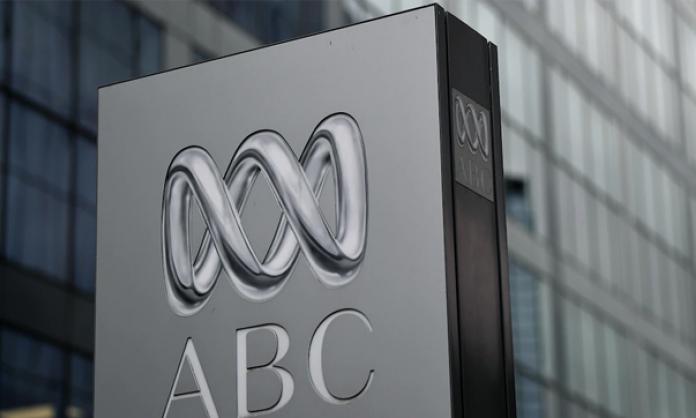On the 30th anniversary of the Tiananmen massacre, Australian politicians and commentators affirmed the importance of various freedoms. Given the Chinese government’s well-known attempts to censor all mention of the 1989 uprising and the massacre that crushed it, much of this commentary focused on freedom of the press.
On the very same day, Australian Federal Police raided a Daily Telegraph journalist’s home ostensibly in response to an article written a year earlier revealing plans to allow Australian spies warrantless access to all our communications. The AFP later said the journalist wasn’t the target, hinting that the real purpose was to intimidate and silence other potential whistle-blowers. When asked about the raid, the prime minister smirked: “It’s always good to see our laws being upheld”.
Meanwhile, headlines were exploding with news first reported on Media Watch. ABC senior management had pulled a critical story about Adani after a complaint from the mining company. The story, researched and prepared by one of the ABC’s award-winning young journalists, was apparently dumped within an hour of Adani’s PR team contacting the ABC’s director of news. The network’s senior management deny the accusation despite Adani confirming it.
By midday on 4 June, all the talk about “freedom of the press” was ringing hollow. But in an even more scandalous development, the AFP launched another raid the following day, this time on the ABC’s national office in Sydney. The raid reportedly relates to documents obtained in the network’s coverage of alleged war crimes committed by Australian soldiers in Afghanistan. You have to ask why the cops waited until after the re-election of the Morrison government to launch these attacks.
**********
In its 2019 World Press Freedom Index, Reporters Without Borders notes of Australia that investigative journalism is under threat, draconian legislation punishes whistle-blowers and “laws on terrorism and national security make covering these issues almost impossible”. And this was the case before this week’s events, in which the Australian government and the AFP seem to be declaring war on the very idea of press freedom. The raid on the ABC is particularly revealing. It comes despite the ABC being a tame organisation by global, and even Australian historical, standards. Take the media union’s evaluation of the current board, for example: “Almost all the directors of the ABC’s eight-member board were appointed directly by the minister for communications Mitch Fifield and some were appointed after being rejected by the merit-based nominations panel”.
Fifield, who last month was replaced by Paul Fletcher, former chief of staff to another ABC-bashing communications minister, Richard Alston, is a well-known member of the right wing Institute of Public Affairs. During his tenure as minister, there were relentless attacks on the ABC, both in funding cuts and against the broadcaster’s content. The minister wanted to break the ABC in preparation for privatising it – an aim he put on the record as far back as 2008, and which the IPA published a book about last year.
But it wasn’t just about privatisation. It was about beating all possible dissent out of the organisation and turning it into a mouthpiece for the government. Several cornerstone news and current affairs programs, most notably Lateline, were victims of the funding cuts. It’s true the role Lateline played in instigating and justifying the racist Northern Territory Intervention stands as an eternal shame on the show – and there were other disgraces along the way. But even this level of complicity in the rotten plans of Liberal governments couldn’t save the show.
A thousand racist interventions couldn’t make up for the occasional genuinely critical interview or, more important, for the gnawing sense that the show’s reporters and producers were proud of being independent of the government. This is even more the case with the Daily Telegraph, which far from being critical of the government, is a staple pro-Liberal rag of the Murdoch press (notwithstanding the critical article that triggered the AFP raid). We can acknowledge all this and still step up to defend the ABC and the Daily Telegraph from the government and the AFP.
Fifield regularly attacked Lateline, ABC News, Insiders and 7:30, and seemed obsessed with lodging formal complaints about chief economics correspondent Emma Alberici. Imagine a cranky right wing letter writer on the opinion pages of the Murdoch press, but then make him the minister in charge. That’s Fifield. But in a sign of how seriously the Liberals take the task of silencing genuinely critical media voices, Fifield also led the charge for the ABC to sack Australia Wide presenter Yassmin Abdel-Magied after her famous Anzac Day tweet: “Lest. We. Forget. (Manus, Nauru, Syria, Palestine ...)”.
The attacks on the ABC have been so relentless, and with the AFP raids still fresh in our minds, it’s tempting to overstate the critical nature of the ABC. There is, for example, a whole genre of social media posts spruiking the glory of “our ABC”. But it’s not as though the ABC is just a plucky band of hard-boiled investigative journalists putting their lives on the line to speak truth to power. There are no doubt ABC journos who’d like to be that, but the ABC as a body resembles every other publicly funded institution in 21st century Australia: budget-driven, heavily bureaucratised and with layers of senior management closely tied to the government.
The loyalties of ABC management are to the national interest, which is exactly what the government and the AFP also claim to stand for. But the “national interest” is only the interests of the national ruling class, and so it often runs counter to any notion of genuine transparency and freedom of information. Hence in 2018, when ABC reporters stumbled across a collection of classified government documents in a second-hand filing cabinet, not only did ABC senior management refuse to publish anything – even in a redacted form – they also refused to reveal the nature of the documents. Worse, they proudly handed them to ASIO. The state’s interests were put ahead of the public interest. But what has all this blind loyalty bought the ABC? Funding cuts, a board stacked with party hacks, endless censorship and police raids.
The outrage that erupted during and after the ABC raid, and the signs that this outrage will soon be manifest in public protest, is an important response to a disturbing escalation in Australia’s authoritarian path. Since 2013, the Coalition has launched a series of attacks on journalists and whistle-blowers, most notably against those who have tried to expose the truth about Manus Island and Nauru refugee prisons. The repressive pattern is becoming a disturbing new normal. Whistle-blowers from the Tax Office to the Immigration Department have also been targeted. We see it too with the AFP raids on the Australian Workers Union, the extraordinary powers of the Australian Building and Construction Commission and the heavily-armed AFP carrying out raids on Muslim households.
The war on press freedom is only one aspect of a global shift towards increasingly authoritarian practices. It doesn’t start or end in Beijing, but it extends to all the hypocrites in Canberra who spent this week solemnly lecturing on the lessons of Tiananmen Square, while sending their own forces to intimidate critical voices right here.





